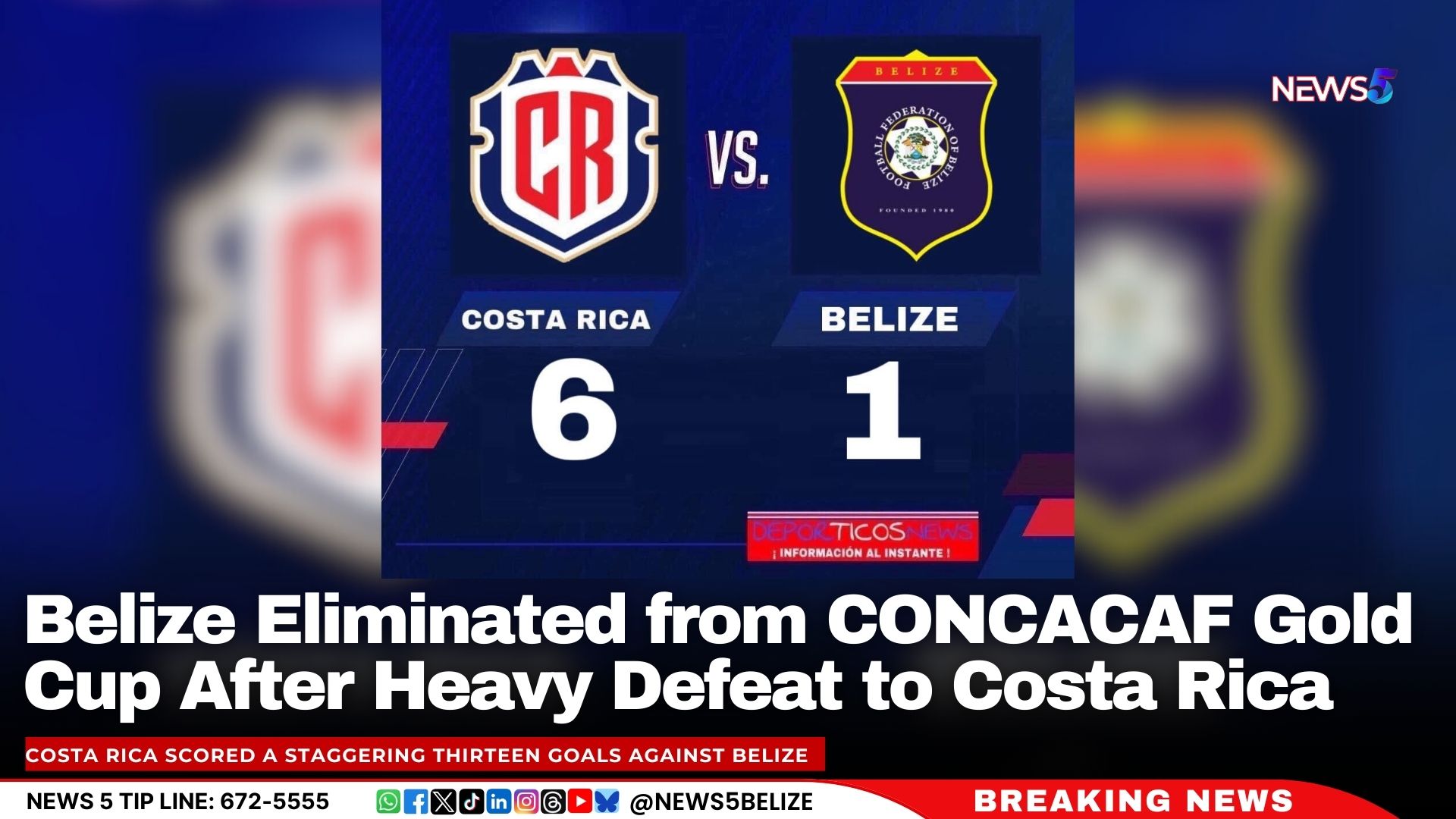Belize’s National Football Selection is officially out of the CONCACAF Gold Cup conversation after suffering a crushing defeat to Costa Rica on Tuesday night. Over the course of two matches, Costa Rica scored a staggering thirteen goals against Belize, sealing the fate of the national team.
The second leg of the qualifier took place at Costa Rica’s National Stadium, with Belize entering the match following a devastating 7-0 loss at home. Just 31 seconds into the game, Belize’s Donell Arzu mistakenly scored an own goal, handing Costa Rica an immediate lead. Minutes later, Alejandro Bran extended the advantage with a long-range shot, and by the seventh minute, Alonso Martinez found the net once again, making it 3-0. Despite a lone goal from Carlos Bernardez, Belize struggled to match Costa Rica’s dominance, ultimately falling 6-1.
The defeat eliminates Belize from the Gold Cup race, while Costa Rica advances. In response, Minister of Sports Anthony Mahler addressed the situation on social media, pledging to overhaul the country’s approach to sports. He assured Belizeans that efforts are underway to restructure, reset, and reimagine the nation’s sports programmes. Mahler also committed to working closely with his Minister of State, Devin Daly, to improve the state of athletics and urged the public to be patient as these changes take effect.
